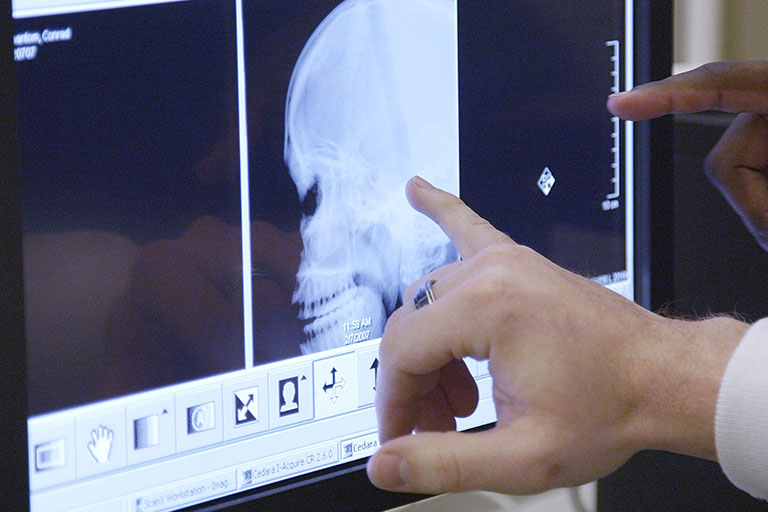Develop a dynamic career in medical imaging with specialized courses and hands-on clinical practice.
What is Radiography?
The WKCTC Radiography Program prepares the individual to become a radiographer. The radiographer is prepared to administer ionizing radiation (x-rays) for medical diagnostic imaging purposes. Emphasis is on radiation protection and quality patient care. The curriculum is comprised of specialized courses in radiography with concentrated study in the basic sciences, mathematics and general education. Students enrolled in the Radiography program must achieve a minimum grade of "C" in each Radiography course. Upon completion of the program, the graduate is eligible to apply for the examination for registration as a radiographer by the American Registry of Radiologic Technologists. Students must pass the national certification exam to become registered. State licensure is required in some states. The Commonwealth of Kentucky requires radiographers to be state licensed through the Kentucky Board of Medical Imaging and Radiation Therapy.

Getting Started
What are my degree, diploma, and certificate options?
How Do I Pay For This?
Worry no more. With the lowest tuition in Kentucky, financial aid options, and a helping hand to guide you through the application process, WKCTC has you covered. WKCTC will help you reach your goals at a price that won't break the bank.
Admission Requirements
What Else Do I Need to Know?
Additional Information
Accreditation
The Radiography program is accredited by the:
Joint Review Committee on Education in Radiologic Technology
20 North Wacker Drive, Suite 2850
Chicago, IL 60606-3182
312-704-5300
Email: mail@jrcert.org
The program's current accreditation award is 8 years. General program accreditation information and the current accreditation award letter can be found at https://www.jrcert.org/programs/west-kentucky-community-and-technical-college/.
Program Effectiveness
The following is the most current program effectiveness data for the Associate Degree in Radiography at West Kentucky Community and Technical College. Our accreditation agency, the Joint Review Committee on Education in Radiologic Technology (JRCERT), defines and publishes this information.
Length of Program
You can earn an associate in applied science degree in two years if you maintain full-time status.
This information should not be considered a substitute for the KCTCS Catalog. You should always choose classes in collaboration with your faculty advisor to ensure that you meet all degree requirements.

